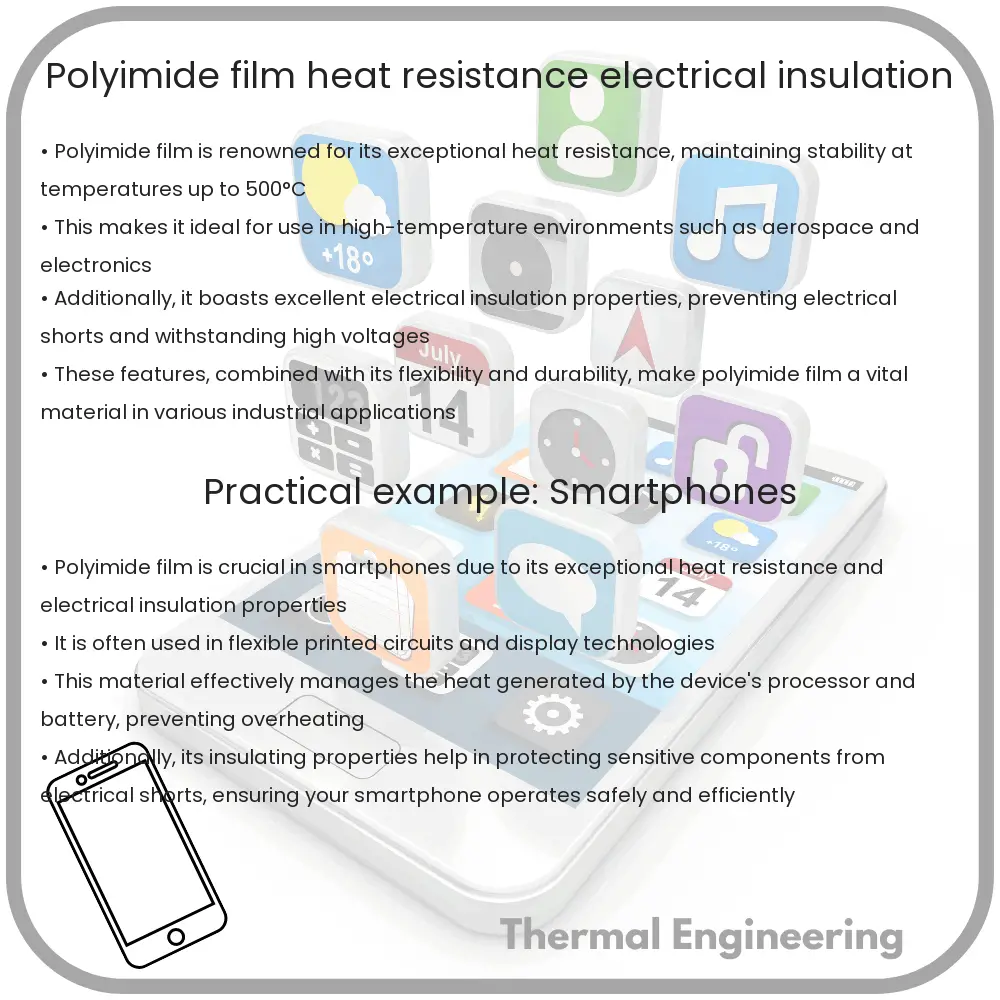Learn about polyimide film, a high-performance polymer known for its exceptional heat resistance and electrical insulation properties, crucial in various high-tech industries.

Understanding Polyimide Film: Heat Resistance and Electrical Insulation Properties
Polyimide film is a high-performance polymer material known for its impressive heat resistance and electrical insulation properties. This material plays a crucial role in various industrial and consumer applications, making it a vital component in fields ranging from electronics to aerospace engineering.
Key Properties of Polyimide Film
Polyimide films are derived from polymers characterized by imide monomers. The typical structure of polyimide allows for a range of mechanical and physical properties that are highly valued in complex engineering applications. Two of the most significant properties are:
- Heat Resistance: Polyimide films are capable of withstanding extreme temperatures, maintaining stability in both high heat and sub-zero conditions. These films typically operate effectively in temperatures ranging from -269°C to about 400°C. This wide temperature range makes polyimide an ideal choice for applications in harsh environments.
- Electrical Insulation: Exceptional electrical insulation is another hallmark of polyimide film. This property is crucial in the manufacture of electronic devices, where it helps prevent electrical shocks and shorts between conductive parts. The dielectric constant of polyimide films generally ranges from 3.0 to 3.5 at 1 MHz, making them suitable for various electronic applications.
Applications of Polyimide Film
Thanks to their robust characteristics, polyimide films are utilized in a multitude of applications, including:
- Electronics: In the electronics industry, polyimide films are widely used as an insulating layer in flexible printed circuits, cables, and other high-performance components. Their ability to maintain integrity under high temperatures contributes to the reliability and longevity of electronic devices.
- Aerospace: The aerospace sector benefits from the lightweight and high thermal stability of polyimide films, using them in critical components such as insulation blankets, gaskets, and more.
- Automotive: Within the automotive industry, polyimide films serve as heat barriers and insulators in sensors and electronic components, particularly in environments exposed to high thermal cycling.
Challenges and Future Outlook
Despite their outstanding properties, the application of polyimide films can be limited by factors like cost and processability. Moreover, their complete environmental impact, particularly in terms of disposal and recycling, is still under study.
Looking ahead, ongoing research and development are focused on enhancing the properties of polyimide films and expanding their applicability. Innovations aim to produce even more heat-resistant materials and to decrease costs, which could open up new markets for this versatile material.
Polyimide films, with their unparalleled thermal resistance and electrical insulation capabilities, continue to shape the future of multiple high-tech industries, proving that advanced materials hold the key to engineering solutions across a broad spectrum of applications.